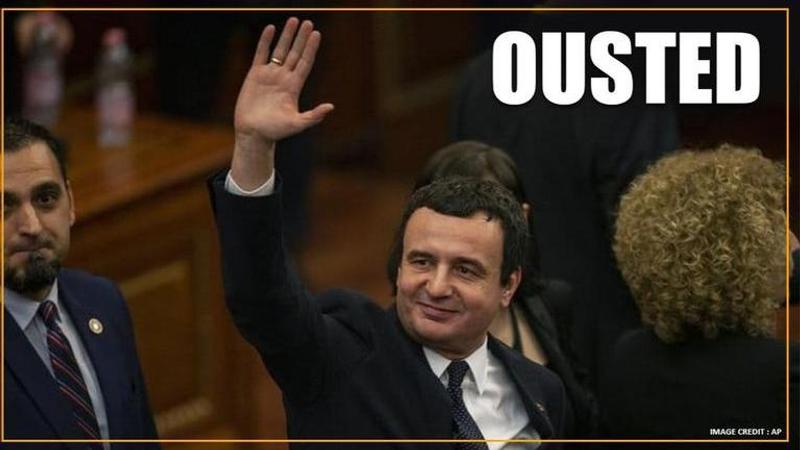Published 11:46 IST, March 27th 2020
Kosovo removes PM Kurti over handling of COVID-19, becomes first European nation to do so
Kosovo lawmakers voted to remove Prime Minister Albin Kurti, becoming first nation in Europe to vote out a government over the way it handled the coronavirus.

In the wake of the deadly infection, Kosovo lawmakers voted to remove Prime Minister Albin Kurti, becoming the first nation in Europe to vote out a government over the way it handled the coronavirus outbreak. The government collapsed late on March 25, just months after it took office. The vote was called by a junior coalition partner who criticized steps taken to curb the contagion.
Clashes between Kurti, President Hashim Thaci
Kurti ordered a curfew and banned public gatherings to stem the spread, defying President Hashim Thaci, who wanted to declare a national emergency. The two officials have been at clashes all along, mainly on how Kosovo should mend ties with Serbia and which of them should lead those efforts. The Cabinet's collapse is a setback for the Balkan state that seeks to gain full international recognition after it declared unilateral independence from Serbia in 2008. Its neighbour has been lobbying against Kosovo's efforts to join international institutions such as Interpol. Relations deteriorated again in 2018 when Kosovo imposed a tax on Serb products in retaliation for its steps against Kosovo.
Kurti remains in charge as a caretaker premier for up to two weeks. During that time, his party may propose a new government leader but it may struggle to find a coalition partner. More than 70 people have been infected with the virus in the landlocked nation of 1.8 million. Kurti’s ouster showed an unusual split among Western powers. While German and French ambassadors spoke out against the no-confidence vote, their US colleague said he was pleased to see the motion taking place. That also reflects their division on how ties with Serbia should be fixed.
According to Gerald Knaus, chairman of the European Stability Initiative, a think-tank based in Berlin, now the US is pushing an approach that's directly opposed to key European nations. The current situation is like back in the 1990s, when the West was completely divided on the core issues in the former Yugoslavia, which left countries like Kosovo in an impossible position.
While Kurti has been saying that any deal with Serbia should be negotiated by parliament, Thaci has wanted to still be the one in charge of talks with his Serb counterpart Aleksandar Vucic. Two years ago, the two presidents floated an idea of a reconciliatory deal that also included redrawing of borders, an explosive issue in the Balkans.
Updated 11:46 IST, March 27th 2020




